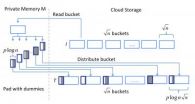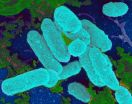(Press-News.org) Researchers at sarcomas research group at the Bellvitge Biomedical Research Institute (IDIBELL) and the Catalan Institute of Oncology (ICO) have been tested in 19 patients a new therapeutic combination to combat resistant sarcomas. The clinical trial results, which indicate that the new treatment could stabilize the growth of these tumors have been published this week in the British Journal of Cancer.
Sarcomas
Sarcomas are a rare type of tumor and complex since there are several subtypes. It can affect from children to older ages. It is usually diagnosed in advanced and very little localized phases. So the 50% cured with major surgeries and localized treatment. But the other 50% is resistant to conventional therapies and ends metastasizing.
The IDIBELL research group in sarcomas, led by Oscar Martinez-Tirado, investigate to test new drugs or new combinations of drugs that could be more effective against these tumors and for that works closely with the coordinator of the Unit of Sarcomas at ICO, Javier García del Muro. This teamwork joins the most basic research to the most clinical and has led in this case to bring the results of research from bench to bedside.
Conventional chemotherapy and targeted therapy
Researchers tested different combinations of conventional chemotherapy with new drugs aimed at molecular targets in cell sarcomas and decided to try in mice a combination of conventional chemotherapy used to treat these tumors and rapamycin, a drug that acts specifically in mTOR, an altered protein in various types of cancer.
"With the results in the cell lines we thought it was the best option to test in mice," said Martinez-Tirado "but the truth is that the results in animals were spectacular. In mice that had the tumor and we gave to them this combination, the tumor stopped growing and weeks after stopping treatment it was not recovered, as it does if we treat them with chemotherapy alone or only with rapamycin. "
Responsible for this phase I clinical trial has been Javier García del Muro. It has been tested this new combination in nineteen patients, most of sarcoma but also included patients with other tumor types that have no treatment. "Although Phase I trials are used to determine the recommended dose and discard toxicities, we have seen that the combination is active in various tumor types, as we have seen prolongated stabilizations in advanced and resistant tumors to chemotherapy" .
With these encouraging results, the group has launched a phase II clinical trial. "We have completed the recruitment of patients, in this case, only sarcomas, to test whether this combination really works in these patients and whether it is better than current treatments."
INFORMATION:
Article reference
Juan Martin-Liberal, Marta Gil-Martín, Miguel Sáinz-Jaspeado, Nuria Gonzalo, Raul Rigo, Helena Colom, Carmen Muñoz, Oscar M Tirado and Xavier García del Muro. Phase I study of sirolimus plus gemcitabine in solid tumors. British Journal of Cancer. Epub ahead July 8th.
New therapeutic combination to slow resistant sarcomas
2014-07-10
ELSE PRESS RELEASES FROM THIS DATE:
'Melbourne Shuffle' secures data in the cloud
2014-07-10
PROVIDENCE, R.I. [Brown University] — To keep data safe in the cloud, a group of computer scientists suggests doing the Melbourne Shuffle.
That may sound like a dance move (and it is), but it's also a computer algorithm developed by researchers at Brown University.
The computing version of the Melbourne Shuffle aims to hide patterns that may emerge as users access data on cloud servers. Patterns of access could provide important information about a dataset — information that users don't necessarily want others to know — even if the data files themselves are encrypted.
"Encrypting ...
The bigger the better: Cigarette warning labels prompt quit attempts
2014-07-10
WASHINGTON - Cigarette warning labels can influence a smoker to try to quit even when the smoker is trying to avoid seeing the labels, according to a survey of thousands of adult smokers in four countries published by the American Psychological Association.
Small, text-only warning labels like those on cigarette packs in the United States prompt people to think about health risks of smoking, and people who notice the warnings regularly are more likely to try to quit, the research found. Larger, more graphic warning labels like those in other countries, such as Australia, ...
Radio-burst discovery deepens astrophysics mystery
2014-07-10
The discovery of a split-second burst of radio waves by scientists using the Arecibo radio telescope in Puerto Rico provides important new evidence of mysterious pulses that appear to come from deep in outer space.
The finding by an international team of astronomers, published July 10 in The Astrophysical Journal, marks the first time that a so-called "fast radio burst" has been detected using an instrument other than the Parkes radio telescope in Australia. Scientists using the Parkes Observatory have recorded a handful of such events, but the lack of any similar findings ...
Working to loosen the grip of severe mental illness
2014-07-10
A neuroscientist at Rutgers University-Newark says the human brain operates much the same whether active or at rest – a finding that could provide a better understanding of schizophrenia, bipolar disorder and other serious mental health conditions that afflict an estimated 13.6 million Americans.
In newly published research in the journal Neuron, Michael Cole, an assistant professor at the Center for Molecular and Behavioral Neuroscience, determined that the underlying brain architecture of a person at rest is basically the same as that of a person performing a variety ...
How antioxidants can accelerate cancers, and why they don't protect against them
2014-07-10
Cold Spring Harbor, NY – For decades, health-conscious people around the globe have taken antioxidant supplements and eaten foods rich in antioxidants, figuring this was one of the paths to good health and a long life.
Yet clinical trials of antioxidant supplements have repeatedly dashed the hopes of consumers who take them hoping to reduce their cancer risk. Virtually all such trials have failed to show any protective effect against cancer. In fact, in several trials antioxidant supplementation has been linked with increased rates of certain cancers. In one trial, ...
Depressed men with prostate cancer are diagnosed later stage, get less effective therapies
2014-07-10
Depressed men with localized prostate cancer were more likely to be diagnosed with more aggressive prostate cancer, received less effective treatments and survived for shorter times than prostate cancer patients who were not depressed, a UCLA study has found.
The negative outcomes may be the result of several factors such as bias against the mentally ill, depression's impact on biological cancer processes, the depressed man's lack of investment in his general health and disinterest in receiving more effective care, and missed opportunities by physicians to educate patients ...
Scientist finds link between antibiotics, bacterial biofilms and chronic infections
2014-07-10
Researchers from the University of Southern California and the Oak Crest Institute of Science have discovered the link between antibiotics and bacterial biofilm formation leading to chronic lung, sinus and ear infections. The study results, published in the current issue of PLOS ONE, illustrate how bacterial biofilms can actually thrive, rather than decrease, when given low doses of antibiotics.
"This research addresses the long standing issues surrounding chronic ear infections and why some children experience repeated ear infections even after antibiotic treatment," ...
BMSCs with Nogo-66 receptor gene silencing for repair of spinal cord injury
2014-07-10
After central nervous system injury, the increase in Nogo protein is mediated by Nogo-66 receptor gene, leading to the collapse of growth cones and inhibiting the extension of neuronal neurites. Zhiyuan Li and his team, Heibei Xingtai People's Hospital, China used RNA interference to silence Nogo-66 receptor gene expression in bone marrow mesenchymal stem cells (BMSCs), blocked the inhibitory effect of Nogo protein, promoted the process growth of neurons differentiated by transplanted cells, improved the therapeutic effects and increased the success rate of BMSCs transplantation ...
Inhibition of NgR expression reduces apoptotic retinal ganglion cells in diabetes
2014-07-10
Activation of Nogo receptor (NgR) is an essential factor of nerve regeneration inhibition, neuronal atrophy and even apoptosis. Upregulation of NgR expression is an important cause of cell apoptosis and visual extinction in some diseases including glaucoma. Whether ganglion cell apoptosis is related to NgR gene expression in diabetes mellitus remains poorly understood. Dr. Xuezheng Liu and his team, Liaoning Medical University, China interfered NgR expression in the retinal ganglion cells of rats with diabetes mellitus and found that Rho kinase expression was obviously ...
Fusion protein of single-chain variable domain fragments and myasthenia gravis
2014-07-10
Single-chain variable domain fragment (scFv) 637 is an antigen-specific scFv of myasthenia gravis and it can bind to acetylcholine receptor in the residues 67-76 of α-subunit of acetylcholine receptor. Dr. Fanping Meng and his team, College of Medicine, Yanbian University in China conjugated scFv and human serum albumin genes and detected the fusion protein in Pichia pastoris. Results showed that the fusion protein bound to acetylcholine receptors in neuromuscular junction of human intercostal muscle and the inhibition rate of fusion protein binding to acetycholine ...









